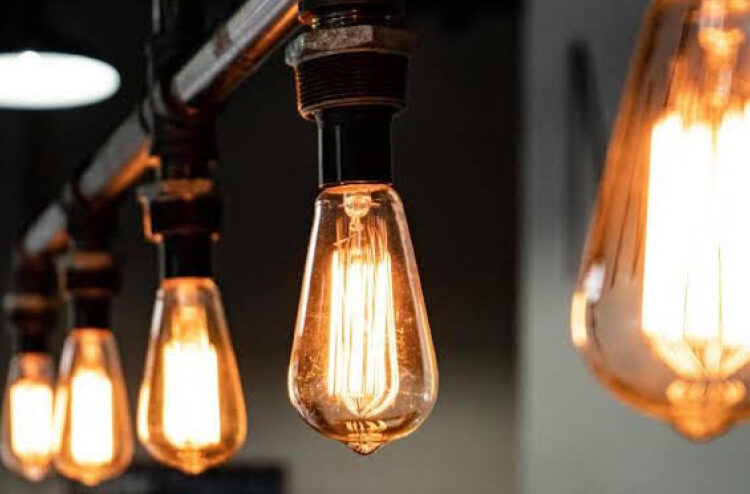Following the successful privatisation of the distribution and generation sectors of the then Power Holding Company of Nigeria (PHCN), the Abuja Electricity Distribution Company (AEDC) Plc was licensed as a full-fledged electricity distribution company 1st November 2013.
With franchise areas covering the FCT, Nasarawa, Kogi and Niger States – the AEDC Plc since transfer of ownership has reportedly been embarking on series of restructuring towards executing the vision and mission statements of the legal entity.
It has the slogan of redefining energy, improving lives and businesses with reliable electricity. How far that watchword has been accomplished remains a topic for another day.
Last Friday, the AEDC issued a statement that parts of the FCT will experience a 16-day blackout owing to relocation of the 33KV DC Airport Feeder and 132 KV Kukwaba-Apo transmission line towers along the outer Southern expressway. The AEDC, sole grid electricity provider to the FCT, stated that the interruption will be between 6 and 21 January 2025.
Areas to be affected by the interruption include Lugbe and environs, American International School, Christ Embassy Church, Airport Road, NNPC, National Stadium, Games Village, EFCC and other parts of Abuja.
“While the relocation of the transmission towers is a necessity for the road completion project, TCN apologises for the inconvenience this planned power outage will cause and assures that power supply will be restored as soon as the towers relocation and cable stringing are completed,” TCN’s general manager, Ndidi Mbah, said in a release confirming the earlier announcement by the AEDC on the planned relocation of power supply infrastructure.
Talking about better operational efficiency, the Nigeria Electricity Regulatory Commission (NERC) recently explained that it expects accountability from Electricity Distribution Companies (DisCos) with revised Key Performance Indicators (KPIs) which should take effect in the first quarter of 2025.
According to the NERC in a statement; “The Order seeks to ensure compliance with the Key Performance Indicators (KPIs). These include accountability by the DisCos’ management, increased operational performance, improved energy delivery to customers, and customer satisfaction.”
Coming as a 3-part addendum to what was earlier issued, the first directive mandates DisCos to ensure they off-take at least 95% of available nominated energy for two out of three months per quarter and failure to meet the target will result in a 5 % reduction in the DisCos’ administrative operational expenditure for the subsequent quarter.
In the second annex labeled Financial Reporting Standards, compliance with the Uniform System of Accounts has been revised from a monthly to a two-month per quarter basis. Non-compliance for two months within a quarter will trigger stringent enforcement measures.
The third annex addresses Customer Complaints Resolution. “DisCos must now achieve a 75% resolution rate for all complaints within a quarter, reflecting an increased focus on customer satisfaction,” the NERC statement added.
Pray, when will the foregoing NERC Order be complied with. In the words of Oluwatobi Wande Ojosipe, talented Nigerian singer/songwriter who is popularly known as Wande Coal in his 2015 single, ‘Se Na Like This’ we go dey dey?
Effects of the blackout can best be imagined than observed. Vendors of frozen food items like fish, meat, chicken, lobsters and sausages in the surrounding neighborhood markets are already counting their losses. These run into several thousands of Naira following the destruction of frozen products that went bad in the absence of power supply. One-man businesses like barbers, hairdressers, cybercafé operators and ice-block sellers are not smiling as well. This is moreso as the cost of fuelling the ‘I pass my neighbour’ gasoline generators has become very prohibitive.
Understandably, the TCN and AEDC are plagued with a myriad of challenges ranging from inadequate equipment maintenance, dearth in transmission grid, lack of genuine spare parts, vandalism and administrative bottlesnecks. However, both entities would do well to redouble their efforts towards increasing their transmission capabilities.
If indeed, the electricity customer is the king/queen as the case may be, why is he/she undergoing this harrowing experience undeserving of any royal treatment?
Where are those rights of electricity consumers in the Nigerian Power Sector as established by the NERC?
Managing over 18,000km of 330 kv and 132 kv high- voltage transmission lines may not be easy which necessitates the imperatives of non-conventional measures aimed at keeping the nation illuminated.
There should be zero tolerance for outages. Emergency repairs like the one in question should be prioritised without the usual delays like the over 2-week duration given.
Being proactive and thinking outside the box can save the transmission entities of the myriad of criticisms leveled against them. So, let there be light, TCN, AEDC. Please!
– Wemambu, political scientist, journalist writes from Abuja. He can be reached through [email protected]





